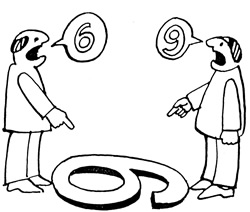Michelle Gibbings* says understanding the world from another person’s perspective can promote social bonds and group harmony.
 The children’s book, A Tale of Two Beasts, by Fiona Roberton tells the tale of a little girl and a small animal (labelled a “strange beast” in the book).
The children’s book, A Tale of Two Beasts, by Fiona Roberton tells the tale of a little girl and a small animal (labelled a “strange beast” in the book).
In the first part, the story is told from the girl’s perspective. One day she is walking through the “deep dark woods” and sees a strange little beast.
She decides to “rescue him”, names him “Fang”, takes him home, washes him, takes care of him and shows him off to her friends. She’s surprised when he runs away.
The story is then retold from the “strange beast’s” perspective. It’s a different tale.
He is happily swinging on a branch when he is “ambushed by a terrible beast” who takes him to her secret lair, makes him horribly clean and surrounds him with other strange beasts.
Perspective — it’s a fascinating and very useful concept.
We have perspectives on people. For example, whether we trust them, like them, or think they are good at their job.
We have perspectives on events and situations — for example, whether it was a good idea to have a public holiday to honour the Queen’s death.
Or whether Collingwood was wrongly denied a place in the 2022 AFL Grand Final because a Sydney Swan’s player should have been penalised.
Or who should cover consumer costs associated with the Optus data breach — I could go on.
We rely on our perspective daily, often with little thought about its impact on our choices.
Yet, our perspective on ourselves, others and events ultimately shape our thoughts, actions, and reactions.
Understanding the perspective of others — known as perspective-taking — is powerful.
Research shows it can enhance ethical behaviour.
The researchers found that as a person’s ability to take another person’s perspective increases, they are more likely to consider their responsibilities (as it relates to others) and to form “highly ethical intentions”.
When a person consciously considers another person’s perspective, they shift their usual mental routines and default ways of processing information.
The benefits include being better able to anticipate behaviour and reactions in others. It can help promote social bonds and group harmony.
When actively trying to see the situation from another person’s perspective, you use different cognitive skills to examine and process information.
You are no longer relying on past ways of thinking; instead, you are challenging yourself to think differently.
When you can see the other person’s perspective, you are more open to understanding what is driving their responses and reactions.
So rather than assuming and judging, you focus on listening and learning, which is essential for healthy and constructive relationships.
Of course, we also hold perspectives on ourselves. While changing your perspective on others is hard, changing your perspective on yourself is even more challenging.
It’s impossible to do if you don’t first seek to understand yourself.
Self-awareness, often defined as “knowing one’s internal states, preference, resources and intuitions,” is central to this.
When you are self-aware, you pay attention to how you feel at any given moment and understand what drives your thought processes and actions.
You also recognise that knowing oneself is a life-long process; consequently, you are open to accepting feedback from others.
This last piece is crucial because it’s often hard to undertake a realistic, subjective and non-biased assessment of ourselves, how we are seen and our impact on others.
American psychologist, Adam Grant says there are 16 studies, involving thousands of people at work, which show that people’s co-workers are better than they are at recognising how their personality will affect their job performance.
Holding a perspective doesn’t mean it is right or necessarily wrong. It’s your version of reality, which means, at times, you need to be willing to change it.
When you can see the world from a different vantage point and are curious about what that means, you may find a whole new world opens for you.
Here are some tips to get your lens shifting:
Seek regular feedback from people you trust
Feedback is important, and you need to seek it out from people you know will challenge you and provide it from a place of good intent.
Be open to different ideas and perspectives
When you hear an idea you don’t like, be curious as to why you don’t like it.
Does the idea challenge a perspective of yours? Does it make you think differently in some way?
Understand your trigger points
Notice when you feel uncomfortable or when you start to feel anxious, alert or in a different state.
What has triggered this feeling or emotional response? Is it a comment, person or event? Are you normally triggered in this way? If so, why?
Be conscious about the choices you make
Stop and reflect on the decision. Is it being made consciously, or is it being driven by the automatic part of the brain?
Embrace diversity of thought and ideas
Seek out people with different backgrounds and ideas as they will open your eyes to different perspectives and experiences.
Who do you have in your social network or workgroup that challenges how you think? Who shares new and novel ideas with you?
You may find that you need to expand your connections.
*Michelle Gibbings is a Melbourne-based change leadership and career expert and founder of Change Meridian. She can be contacted at [email protected].
This article first appeared at changemeridian.com.au











